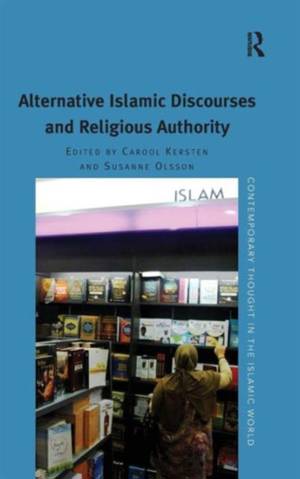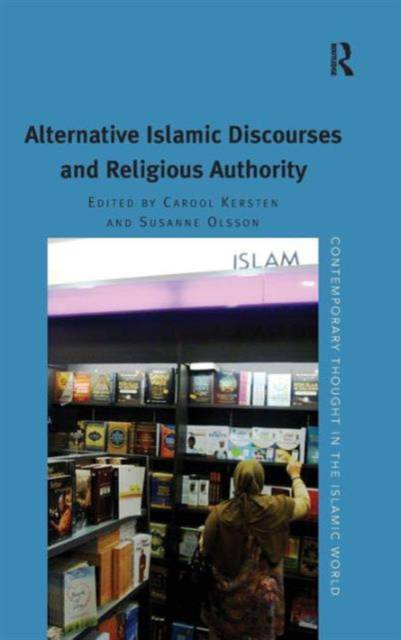
- Afhalen na 1 uur in een winkel met voorraad
- Gratis thuislevering in België vanaf € 30
- Ruim aanbod met 7 miljoen producten
- Afhalen na 1 uur in een winkel met voorraad
- Gratis thuislevering in België vanaf € 30
- Ruim aanbod met 7 miljoen producten
Zoeken
Alternative Islamic Discourses and Religious Authority. Edited by Carool Kersten, Susanne Olsson
€ 305,45
+ 610 punten
Omschrijving
Like anywhere else, the present-day Islamic world too is grappling with modernity and postmodernity, secularisation and globalisation. Muslims are raising questions about religious representations and authority. This has given rise to the emergence of alternative Islamic discourses which challenge binary oppositions and dichotomies of orthodoxy and heterodoxy, continuity and change, state and civil society. It also leads to a dispersal of authority, a collapse of existing hierarchical structures and gender roles. This book further argues that the centre of gravity of many of these alternative Islamic discourses is shifting from the Arabic-speaking 'heartland' towards the geographical peripheries of the Muslim world and expatriate Muslims in North America and Europe. At the same time, in view of recent seismic shifts in the political constellation of the Middle East, the trends discussed in this book hold important clues for the possible direction of future developments in that volatile part of the Muslim world.
Specificaties
Betrokkenen
- Uitgeverij:
Inhoud
- Aantal bladzijden:
- 220
- Taal:
- Engels
- Reeks:
Eigenschappen
- Productcode (EAN):
- 9781409441304
- Verschijningsdatum:
- 28/11/2013
- Uitvoering:
- Hardcover
- Formaat:
- Genaaid
- Afmetingen:
- 156 mm x 234 mm
- Gewicht:
- 489 g

Alleen bij Standaard Boekhandel
+ 610 punten op je klantenkaart van Standaard Boekhandel
Beoordelingen
We publiceren alleen reviews die voldoen aan de voorwaarden voor reviews. Bekijk onze voorwaarden voor reviews.






